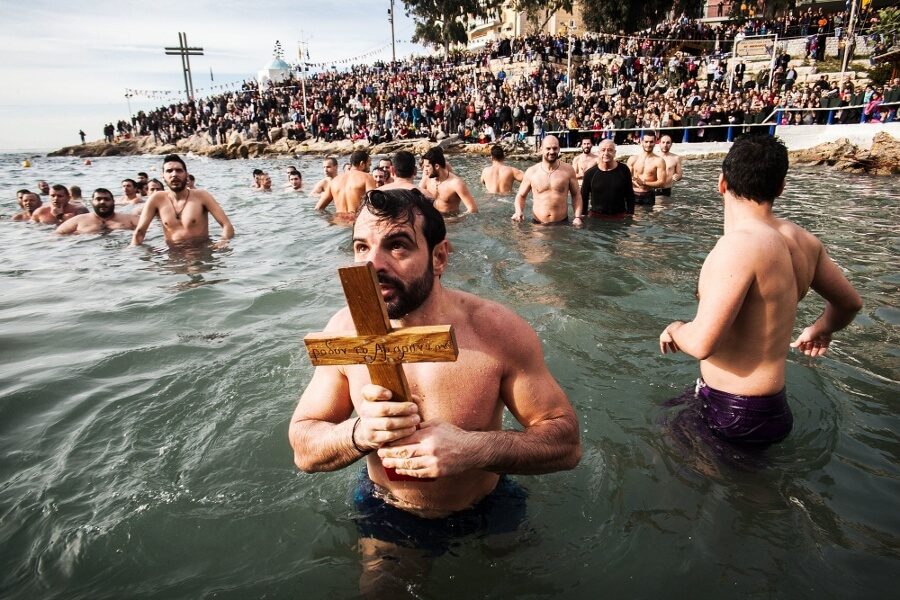Epiphany Explained

January 6 marks one of the most cathartic and cinematic moments on the Greek Orthodox calendar. Many visitors to Greece at this time of year are charmed to witness the millennia-old spectacle of Epiphany. Men and boys, (traditionally), leap into icy waters to be the first to retrieve the Cross thrown by an Orthodox priest, as part of the Blessing of the Waters. The one who brings the cross up to the surface will enjoy good fortune and health for the entire year.
The Epiphany celebration emerged in AD 361, initially as a commemoration of the birth of Christ, and then, to recall the three miracles that manifested the divinity of Christ. Taken from the Greek word Epiphania, it means “to show, make known, or reveal” – and officially closes the Twelve Days of Christmas that commence on Christmas Eve.
Usually, a long procession is led by cherub icons and priests dressed in their best “glad rags”, and follows whichever road leads to a body of water. The sea, a river or even a reservoir. In bigger cities like Athens, the procession is more elaborate with the addition of music and military contingents. If there is no living water nearby, the Blessing ceremony is held outside the church with a baptism font filled with water. People take the Holy Water at home and sprinkle their house, their fields, their animals. They also drink it.
The Greek Orthodox Church teaches that on this day, a miracle occurs and the nature of water changes and becomes pure, as the evil is drawn out of it.

Sprinkling the Theophany Waters is also meant to cleanse the world of the mischief-prone Kalikantzaroi, the goblins trying to torment God-fearing Christians throughout the festive season. In many parts of Greece, the woman of the household still pours out all the water on the eve of Epiphany (usually old Holy Water), so that in the morning they can replenish it with fresh Holy Water from the church, safe-guarding their home throughout the coming year.
If you happen to encounter noisy groups (or “agyrmoi”) of carolling children wandering from house to house in your street today and creating rather a frightful din with bells, be thankful. The traditional purpose is also to scare away those troublesome Gremlins!
Oh, and if you are a stickler for the rules, today is also the last day for you and your family to enjoy your Christmas Tree. Tomorrow, by rights, it should come down.













